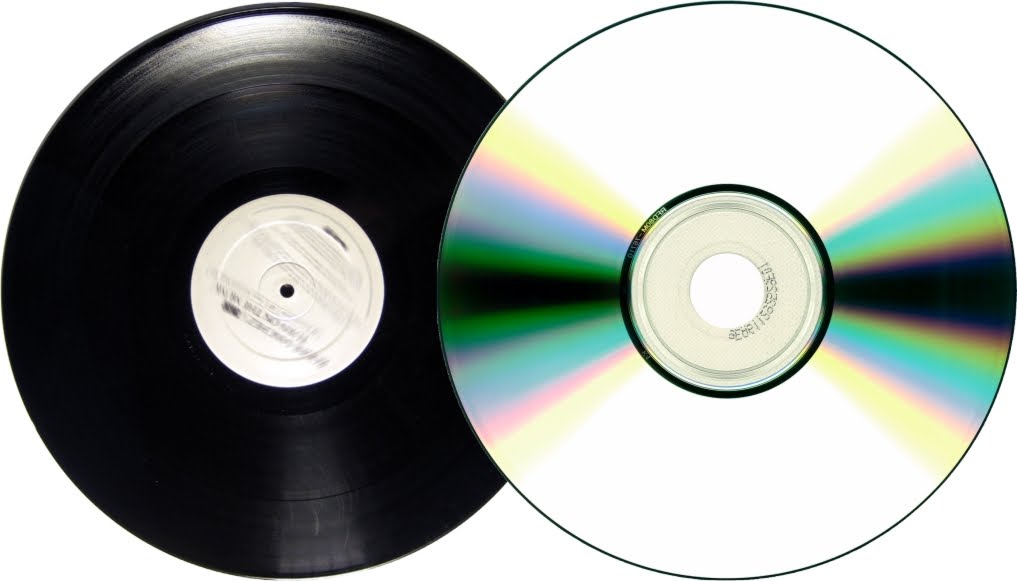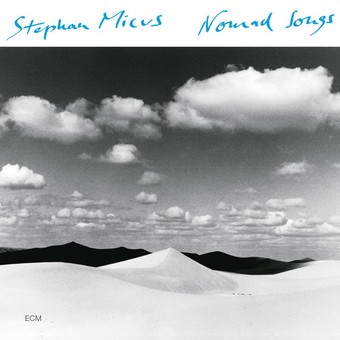CD ECM Records Stephan Micus: Nomad Songs

ATENŢIE: Produsul CD ECM Records Stephan Micus: Nomad Songs nu mai este disponibil la AVstore.ro.
Acest lucru se datorează de cele mai multe ori faptului că producătorul ECM Records a încetat să mai fabrice acest model sau l-a înlocuit cu unul mai performant.
Stephan Micus - Ndingo, Genbri, Steel-String Guitar, Suling, Voice, Nay, Rewab, Rabab, Twelve-String Guitar, Fourteen-String Guitar, Tin Whistle, Shakuhachi
German born Stephan Micus is quite simply one of the most intriguing musicians in music. The multi-instrumentalist has over the course of many decades, concocted his own dialect playing instruments from cultures he has studied across the world. Micus’ albums generally take a few years to create as he builds layer upon layer of instrumentation, crafting each album with a particular theme in mind […] Micus’ twenty first ECM album “Nomad Songs” reflects in some respects cultures that have been uprooted from their traditions, have lived in peace and harmony wandering the land and due to factors beyond their control have had to adapt and relinquish their lifestyles as nomads. He integrates these new instruments into a palette as a pan cultural stew that musically represents harmony from seemingly disparate elements. […] This world melange takes the listener to many established places and even imagined ones, from the mind of one of the most captivating musicians around. The listener is taken on their own nomadic journey, and no matter where it brings them, the depth will reveal something different each time. [ CJ Shearn, Blueceej.com ]
Prezentare generala CD ECM Records Stephan Micus: Nomad Songs
2015
Stephan Micus - Ndingo, Genbri, Steel-String Guitar, Suling, Voice, Nay, Rewab, Rabab, Twelve-String Guitar, Fourteen-String Guitar, Tin Whistle, Shakuhachi
Stephan Micus is a unique figure in music. In his numerous journeys all over the world he seeks to study and understand traditional instruments, the sounds that they produce and the cultures that brought them to life. He then composes original pieces for them, playing all the instruments himself and multi-tracking the compositions in many layers. In this way he combines instruments that would never normally be heard together, chosen from different cultures simply for their character, texture and sonic beauty. Micus’ music is profound, powerful and very original. Songlines magazine described his as “a one man universe of sound.” Nomad Songs is his 21st album for ECM.
While his last album Panagia was a meditative reflection around prayers to the Virgin Mary, this new one, Nomad Songs is more earthy and more vigorous. Its main characters are two instruments that Micus hasn’t used before. The first is the Moroccan genbri, a lute covered with camel-skin, played by the Gnawa in Morocco. The Gnawa are the descendants of former Sub-Saharan slaves who play the genbri in night-long trance and healing ceremonies, traditionally combining it only with voices and big iron castanets. The deep sound of the genbri carries the earthy vibrations of Black Africa rather than the refined melodies of Arab lutes common in North Africa.
The second is the ndingo, a lamellophone similar to the kalimba, used by the San people in Botswana. These indigenous inhabitants of Southern Africa have been pushed off their land and marginalised by the new nation states. “All over the world there were people who lived over hundreds or thousands of years in complete harmony with nature and caused no damage to the environment,” explains Micus. “Yet always – instead of being admired for this tremendous achievement – these people are looked down upon. It shows that we have no understanding of what is important in life. The San people, the Australian aborigines, the Native Americans, the original inhabitants of Siberia and many others are demoralised or at the brink of extinction and have been forced to give up their nomadic life.”
Stephan Micus is a musical nomad, traveling to find new inspirations and instruments, learning to play them and making his own musical journeys with them. “So this title Nomad Songs is an homage to these people and also a description of what I feel about myself and the beauty of this kind of lifestyle,” he says.
Micus sees his instruments as characters in a drama or a journey – interacting, working together or in contrast to each other. Each album has its own particular sound and flavour. “For me a CD is not just a sequence of pieces. I try to compose the whole thing so that in the end there is a story that makes sense.”
The opening track of Nomad Songs begins with the delicate, evocative sounds of the ndingo beneath which the genbri leads us forward with a walking bass line. As he often does, Micus uses a specially-commissioned instrument – in this case a larger genbri to give a deeply resonant bass sound. By slapping the skin of the instrument while simultaneously plucking, Micus adds a percussive element and energy to Nomad Songs.
“The genbri has a low register and the ndingo a high register, so they complement each other quite nicely,” adds Micus. “The genbri has a dry gut sound which is very earthy and the ndingo is very airy and rather like bells.” The genbri might be seen as the lead male character and the ndingo as the female lead. Other characters in his nomad story are flutes – the Japanese shakuhachi and Egyptian nay, both favourites of Micus – tin whistles, various guitars and two lutes which share the same name, but sound very different. The rabab, covered with a goat skin, is the national instrument of Afghanistan and with a stocky body and a gutsy, muscular sound – very masculine in character. The rewab, also from Central Asia, covered with a snake skin, is played by the Uyghur people in Chinese Xinjiang. It has a higher and more delicate sound. On Nomad Songs these two instruments are always playing together – although that would be most unlikely in real life.
Micus always constructs his albums very carefully. Nomad Songs alternates rhythmic tracks (like ‘The Spring’) with more meditative ones (like ‘The Stars’), with ‘The Blessing’, a piece featuring just his solo voice, at the centre. The music builds up to ‘The Dance’ which features six instruments, the largest number on any one track of the album. After a slow introduction, it moves into a stately, lyrical tune in irregular rhythm played by the Afghan rabab and the Uyghur rewab. The last piece, ‘Under the Chinar Trees’, is like a closing apotheosis with shakuhachi flute and voice over the chiming ndingos.
Micus’ vocals are sung in an invented language which he’s used on many previous albums. “It’s not a language with a vocabulary, but these words are just vehicles for emotions. I guess anybody can understand it in a way – not intellectually, but emotionally or intuitively.”
In addition to the three guitars he uses, the instruments on this album come from Botswana, Morocco, Bali, Egypt, China, Afghanistan, Ireland and Japan. But Micus very rarely plays them in the conventional way. “It makes little sense for a German to interpret Asian or African traditional music in public,” he says. “This is the domain of the local musicians. I try to discover new ways to use these ancient instruments and play them together with instruments from foreign cultures, thus creating combinations that have never been performed before. Another thing that interests me a lot is to modify instruments or invent new versions of them.” So he’s rearranged the keys on the ndingo, replaced the seven metal strings of the rewab with three gut ones, he’s using a genbri which is 25% bigger than normal, restrung the 12 string guitar, designed his own 14 string guitar and put additional finger holes in the shakuhachi.
Micus first heard the Moroccan genbri at a concert in Germany in the 1980s. From that time he dreamt about combining the bass sounds of the genbri with his flutes or other melody instruments. He’s made several trips to Morocco but it was not until 2008 that he found himself seriously studying the genbri in Essaouira, one of the centres of Gnawa music in Morocco with Adil Soudani.
Compared to Micus’ other albums, the music on Nomad Songs is more simple with fewer instruments and fewer overdubs giving it freshness and spontaneity.
REVIEW-URI PENTRU CD ECM Records Stephan Micus: Nomad Songs
Momentan produsul CD ECM Records Stephan Micus: Nomad Songs nu are nici un comentariu din partea utilizatorilor. Fii tu primul care adauga un comentariu.
Subiecte de pe AVstore.ro/blog/ care au legatura cu CD ECM Records Stephan Micus: Nomad Songs
 Albume CD si Vinil in categoria Muzica la AVstore.roIncepem anul 2015 cu o premiera. Puteti achizitiona de la AVstore nu numai echipamentele destinate reproducerii muzicii ci si inregistrari de cea mai buna calitate, pe suportul preferat de dumneavoastra - CD sau
Albume CD si Vinil in categoria Muzica la AVstore.roIncepem anul 2015 cu o premiera. Puteti achizitiona de la AVstore nu numai echipamentele destinate reproducerii muzicii ci si inregistrari de cea mai buna calitate, pe suportul preferat de dumneavoastra - CD sau
La AVstore.ro gasesti un pret excelent, poti plati in rate si poti alege din intreaga gama de Muzica CD ECM Records.
Vezi specificatii tehnice, review-uri si pareri despre CD ECM Records Stephan Micus: Nomad Songs (CD2409).
Disclaimer: Echipa AVstore.ro încearcă să menţină acurateţea informaţiilor la CD ECM Records Stephan Micus: Nomad Songs dar rareori acestea pot conţine mici inadvertenţe, ex: accesorii neincluse în preţ, specificaţii tehnice diferite, informaţii neactualizate despre preţ şi stoc. Ne poţi contacta oricând pentru a clarifica eventuale nelămuriri. Nu uita să menţionezi în corespondenţa ta numele exact al produsului - CD ECM Records Stephan Micus: Nomad Songs
 Intra in contul tau si ai acces la
Intra in contul tau si ai acces la





















Urmareste-ne pe Facebook si Google+
si vei avea acces la: